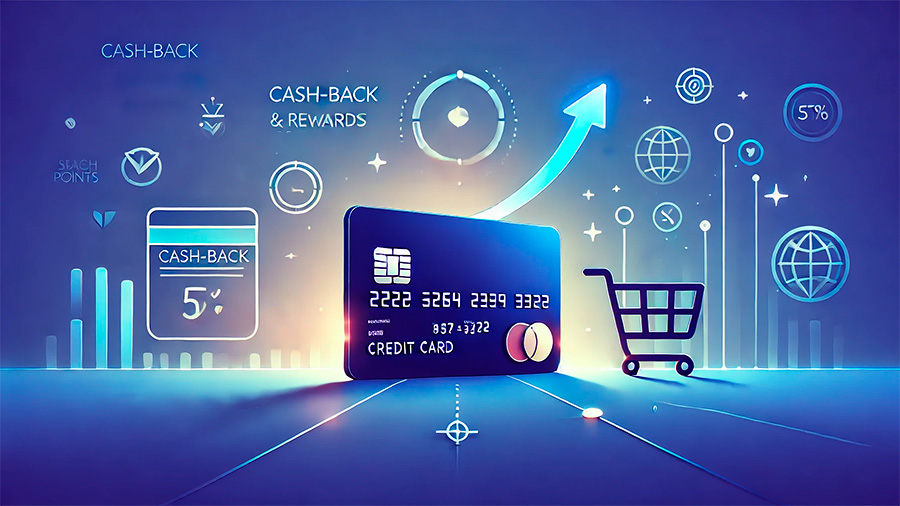Building Financial Freedom: Alternatives to Loans for Major Buys

When it comes to making significant purchases, many people immediately think of taking out loans to cover the cost. While loans can be a useful financial tool, they come with the obligation to repay with interest, which can lead to long-term financial stress. Fortunately, there are several alternatives to loans that can help individuals make major purchases without the burden of debt. This article explores these alternatives, such as saving plans, crowdfunding, and employer-sponsored benefits, and how they can be incorporated into smart financial planning.
The Case for Avoiding Loans
Taking out a loan for a major purchase, whether it’s a new car, home renovations, or a vacation, is a common practice. However, loans come with several risks, including:
1. Interest Payments and Debt
Loans generally require the borrower to pay back the principal amount along with interest. Over time, these interest payments can add up significantly, increasing the overall cost of the purchase.
2. Financial Strain
Taking on debt can create financial strain, especially if there are unexpected life changes such as job loss, health issues, or other expenses. Loan repayments can further limit your financial flexibility and make it harder to save for other important goals.
3. Credit Score Impact
While loans are often a way to build credit, late payments or large amounts of outstanding debt can negatively impact your credit score. This can affect your ability to secure future loans or credit at favorable terms.
Given these potential drawbacks, it’s worth exploring alternatives that allow you to make major purchases while avoiding the negative consequences of loans.

Non-Loan Alternatives for Major Purchases
There are several ways to make significant purchases without relying on loans. By using alternative strategies, you can achieve your purchasing goals while maintaining financial security.
1. Saving Plans: The Debt-Free Approach
One of the best alternatives to taking out a loan is to save for a purchase. While this requires patience and discipline, saving up for a major purchase allows you to avoid debt altogether and make purchases without the stress of monthly payments.
Benefits of saving for purchases:
- No debt: By saving ahead of time, you avoid taking on any debt, meaning you won’t have to worry about interest payments or loan repayments.
- Financial discipline: Setting aside money over time helps you develop better saving habits and increases your financial security in the long run.
- Flexibility: Saving gives you the flexibility to purchase what you want without being locked into a repayment plan.
2. Employer-Sponsored Benefits: Leveraging Workplace Programs
Many employers offer benefits that can help with making significant purchases. These benefits may include discounts, matching savings contributions, or employer-sponsored purchasing programs. By taking advantage of these benefits, you can reduce the need for loans and make large purchases in a financially savvy way.
Employer-sponsored benefits for making major purchases:
- Employee discounts: Some companies offer discounts on products or services, which can help lower the cost of big purchases like electronics, furniture, or vehicles.
- Employee assistance programs (EAPs): Some employers offer financial assistance programs, such as interest-free loans or financial planning services, that can help employees save for or purchase big-ticket items.
- Employer-matched savings accounts: Some employers offer savings programs where they match a percentage of your contributions. These programs can be used for purchases such as buying a home or paying for education.
3. Crowdfunding: Leveraging Your Network
Crowdfunding platforms, such as GoFundMe or Kickstarter, allow individuals to raise money for personal or business purposes by appealing to their network or the public. While this option may not be appropriate for every type of purchase, it can be a useful strategy for making large purchases or funding projects, particularly if the purchase has a community or charitable element.
How crowdfunding can work for major purchases:
- Shared goals: If your purchase involves a cause or community benefit, you can rally support from your network to help fund the purchase.
- Gifts and donations: For personal milestones such as weddings or major life events, crowdfunding can provide an opportunity for others to contribute, reducing your need to take out loans.
- Business ventures: Entrepreneurs can use crowdfunding to fund the development of a new product, service, or business, helping to cover initial costs without taking on debt.

4. Using Cash Back and Rewards Programs
If you have a credit card or a loyalty program with your bank, you may be able to leverage cash-back offers or rewards points to offset the cost of major purchases. While this strategy doesn’t eliminate the need for money upfront, it can significantly reduce the amount you need to spend and help you make the purchase without taking on debt.
Maximizing cash-back and rewards programs:
- Cash-back offers: Many credit cards offer cash-back deals for specific purchases. By strategically using these cards for large purchases, you can reduce the overall cost through rewards.
- Loyalty programs: Retailers and businesses often offer loyalty programs where points accumulate with each purchase. These points can be redeemed for discounts or products, lowering the amount you spend.
- Sign-up bonuses: Many credit cards or financial institutions offer sign-up bonuses or special deals that can be used towards your major purchase.
When to Use Loans as a Last Resort
While loans are a common method for funding major purchases, they should be considered as a last resort. If you’ve exhausted non-loan alternatives and still need to make a purchase, then exploring loan options with favorable terms may be necessary.
When loans might still be necessary:
- Urgent needs: If the purchase is time-sensitive (such as medical expenses or emergency home repairs), loans may be the quickest way to secure the funds needed.
- Large investments: For significant long-term investments, such as buying a home or paying for education, loans may be appropriate, but they should be manageable within your budget.
- Affordable repayment plans: If the loan comes with low interest rates, favorable terms, and fits within your budget, it can still be a responsible way to finance a large purchase.
Conclusion
While loans are a commonly used tool for financing major purchases, there are many alternatives that can help you achieve your goals without taking on debt. By using saving plans, leveraging employer-sponsored benefits, considering crowdfunding, or maximizing rewards programs, you can make significant purchases while maintaining financial stability. It’s important to evaluate each option and choose the one that best aligns with your financial situation and long-term goals. By making smart financial decisions today, you can avoid unnecessary debt and build a more secure financial future.
